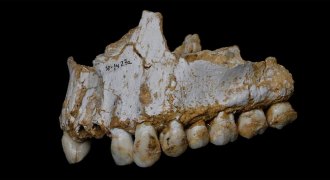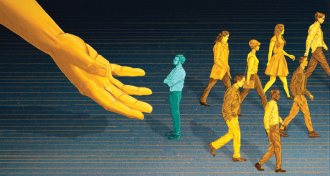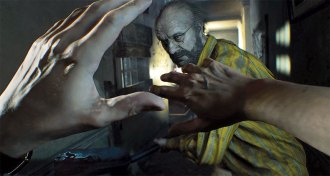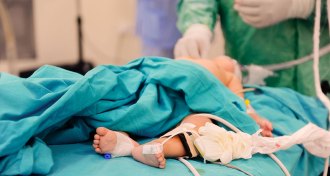Humans
Sign up for our newsletter
We summarize the week's scientific breakthroughs every Thursday.
-
 Science & Society
Science & SocietyOnline reviews can make over-the-counter drugs look way too effective
Online patient reviews put a far more misleading spin on medications than clinical trials do.
By Bruce Bower -
 Climate
ClimateChanging climate could worsen foods’ nutrition
Climate change could aggravate hidden hunger by sapping micronutrients from soils and plants, reducing nutrition in wheat, rice and other crops.
By Susan Milius -
 Archaeology
ArchaeologyAncient dental plaque tells tales of Neandertal diet and disease
Researchers have reconstructed the diet and disease history of ancient Neandertals.
-
 Archaeology
ArchaeologyAncient dental plaque tells tales of Neandertal diet and disease
Researchers have reconstructed the diet and disease history of ancient Neandertals.
-
 Archaeology
ArchaeologyAncient nomadic herders beat a path to the Silk Road
Herders’ mountain treks helped mold the Silk Road, an ancient, cross-continental trade network.
By Bruce Bower -
 Psychology
PsychologyNudging people to make good choices can backfire
Steering people’s decisions with simple nudges, such as e-mail reminders or opt-out programs, can come with a downside.
By Bruce Bower -
 Tech
TechVirtual reality has a motion sickness problem
Virtual reality games and experiences can make some people sick, and women are more susceptible.
By Betsy Mason -
 Health & Medicine
Health & MedicineAnesthesia for youngsters is a tricky calculation
Scientists, doctors and parents face uncertainty when it comes to anesthesia for babies.
-
 Anthropology
Anthropology‘Monkeytalk’ invites readers into the complex social world of monkeys
In Monkeytalk, a primatologist evaluates what’s known about monkeys’ complex social lives in the wild.
By Bruce Bower -
 Ecosystems
EcosystemsIf you think the Amazon jungle is completely wild, think again
Ancient Amazonians partly or fully domesticated fruit and nut trees that still dominate some forests.
By Bruce Bower -
 Health & Medicine
Health & MedicineCertain birth defects are on the rise since Zika arrived in the U.S.
The rate of certain birth defects is much higher in babies born to Zika-infected mothers in the United States, the CDC reports.
-
 Health & Medicine
Health & MedicineMicrocephaly, other birth defects are on the rise since Zika’s arrival
The rate of certain birth defects is much higher in babies born to Zika-infected mothers in the United States, the CDC reports.